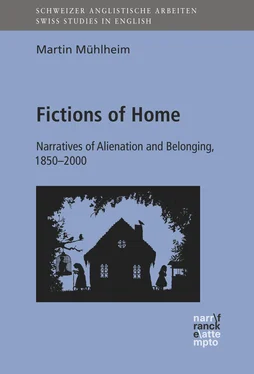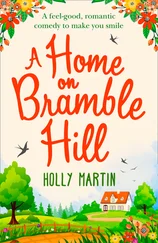Martin Mühlheim - Fictions of Home
Здесь есть возможность читать онлайн «Martin Mühlheim - Fictions of Home» — ознакомительный отрывок электронной книги совершенно бесплатно, а после прочтения отрывка купить полную версию. В некоторых случаях можно слушать аудио, скачать через торрент в формате fb2 и присутствует краткое содержание. Жанр: unrecognised, на английском языке. Описание произведения, (предисловие) а так же отзывы посетителей доступны на портале библиотеки ЛибКат.
- Название:Fictions of Home
- Автор:
- Жанр:
- Год:неизвестен
- ISBN:нет данных
- Рейтинг книги:3 / 5. Голосов: 1
-
Избранное:Добавить в избранное
- Отзывы:
-
Ваша оценка:
- 60
- 1
- 2
- 3
- 4
- 5
Fictions of Home: краткое содержание, описание и аннотация
Предлагаем к чтению аннотацию, описание, краткое содержание или предисловие (зависит от того, что написал сам автор книги «Fictions of Home»). Если вы не нашли необходимую информацию о книге — напишите в комментариях, мы постараемся отыскать её.
In detailed readings of one film and six novels, a view is developed according to which home, as a spatio-temporal imaginary, is rooted in our species being, and as such constitutes the inevitable starting point for any progressive politics.
Fictions of Home — читать онлайн ознакомительный отрывок
Ниже представлен текст книги, разбитый по страницам. Система сохранения места последней прочитанной страницы, позволяет с удобством читать онлайн бесплатно книгу «Fictions of Home», без необходимости каждый раз заново искать на чём Вы остановились. Поставьте закладку, и сможете в любой момент перейти на страницу, на которой закончили чтение.
Интервал:
Закладка:
Importantly, it is Tom who breaks up Maggie and Philip’s relationship because of his inflexible notions of familial duty and, in particular, female respectabilityrespectability. When Tom finds out about Maggie and Philip’s secret meetings, he angrily confronts his sister, threatening to tell Mr. Tulliver that Maggie is “a disobedient, deceitful daughter, who throws away her own respectability by clandestine meetings with the son of a man that has helped to ruin her father” (278; bk. 5, ch. 5). Tom then forces Maggie to lead him to Philip, and his reproaches to the latter, too, are explicitly patriarchalpatriarchy: “Do you pretend you had any right to make professions of lovelove to her, even if you had been a fit husband for her, when neither her father nor your father would ever consent to a marriagemarriage between you?” (280). Maggie, disgusted at Tom’s contemptuous treatment of both Philip and herself, vehemently reproaches her brother for his selfself-righteous attitude: “[Y]ou have always enjoyed punishing me – you have always been hard and cruel to me” (282). Tom, however, proves inexorable, and instead asks Maggie why she chooses to show her love through selfishness and deceit rather than by trying to improve their family’s situation. Maggie’s answer once again focuses on gender as the decisive factor: “Because you are a man, Tom, and have power, and can do something in the world” (282; bk. 5, ch. 6). Maggie thus explicitly frames her conflictconflict with Tom in terms of the limitationslimitations she encounters as a woman, which relates their personal conflict to broader questions of societal prejudice.
In a similar vein, critics have long pointed out that a gender biasbias lies at the heart of overly optimistic assessments of the BildungsromanBildungsroman as a literary genregenre. If we have so far used the masculine pronoun to refer to the prototypical hero of a Bildungsroman , then this is because the conventionalconventions story of a sturdy individual venturing out to explore the world constitutes – at least in a nineteenth-century context – a decidedly masculine ideal. For Susan J. RosowskiRosowski, Susan J., such masculine quests find a feminine counterpart in what she calls the “novel of awakening”:
The novel of awakening […] also recounts the attempts of a sensitive protagonist to learn the nature of the world, discover its meaning and pattern, acquire a philosophyphilosophy of life, but she must learn these lessons in terms of herself as a woman. […] The protagonist’s growth results typically not with “an art of living,” as for her male counterpart, but instead with a realization that for a woman such an art of living is difficult or impossible: it is an awakening to limitationslimitations. (313)
Where the BildungsromanBildungsroman emphasizes the male protagonist’s quest for independence, the novel of awakening focuses on the limits to freedomfreedom in the lives of women. Precisely because the limitationslimitations imposed on women are greater, GregoryCastle, Gregory Castle argues that novels of awakening “may be a better index of the subversivesubversion potential of the genregenre” than the texts featuring a male protagonist (21).104
According to Jane McDonnellMcDonnell, Jane, the subversivesubversion potential of novels of awakening arises, in particular, from the way in which they highlight the conflictconflict between, on the one hand, the ‘male’ values of personal development and selfself-determinationself-determination, and, on the other, “the ideals of renunciation and self-sacrificesacrifice so often demanded of nineteenth-century women” (379).105 In the final two books of The Mill on the Floss , for instance, Maggie falls in lovelove with Stephen Guest, heir to a local business and banking concern and fiancé of Maggie’s cousin Lucy. At first, both Stephen and Maggie try to resist each other’s mutual attraction, but they ultimately relinquish, with Stephen appearing to Maggie as a “stronger presence that seemed to bear her along without any act of her own will” (376; bk. 6, ch. 13). Maggie elopes with Stephen and soon finds herself on a boat, floating down the river Floss. After a spell of fitful sleep, punctured by disturbing dreams, however, Maggie’s struggle with her own conscience resumes, and she forces herself to leave Stephen and return home:
I can’t believe in a good for you, that I feel – that we both feel is a wrong towards others. We can’t choose happinesshappiness either for ourselves or for another: we can’t tell where that will lie. We can only choose whether we will indulge ourselves in the present moment, or whether we will renounce that, for the sake of obeying the divine voice within us – for the sake of being true to all the motives that sanctify our lives. (387; bk. 6, ch. 14)
It is important to note that Maggie’s fateful decision is simultaneously conventionalconventions and brave, for while such an act of female renunciation would have been expected by VictorianVictorian readers, in Eliot’s novel it also constitutes a reassertion of the protagonist’s agencyagency against her passive submission to her male partner’s desiredesire for a sort of escapismescape and escapism: to elope and, as Stephen puts it, “never go home again” (377; bk. 6, ch. 13).
And yet, Maggie is not rewarded for her painful act of renunciation by any semblance of poetic justicepoetic justice. Instead, she is ostracized by her home communitycommunity in a way that, once again, highlights how gender differencegender difference impacts on one’s chances to establish a sense of belonging. After Maggie’s return to St. Ogg’s, her behavior is widely judged as shamefulshame – particularly by the ‘respectablerespectability’ women of the communitycommunity, who could have forgiven her if Maggie had returned home married to Stephen, as a ‘legitimate’ member of (patriarchalpatriarchy) society, but who now ironically blame Maggie for her “unwomanly boldness and unbridled passion” (397; bk. 7, ch. 2). By contrast, public opinion regards Stephen’s conduct as admittedly blameworthy, but also as understandable, even natural, in a young man. Eliot’s contemporaries were, in other words, confronted with a novel whose heroine does precisely what, as a woman, she ought to do (i.e. resist the temptations of sexual desiredesire), but who is not, in the end, rewarded for her act of renunciation. This outcome flies in the face of the VictorianVictorian expectations that Oscar WildeWilde, Oscar brilliantly satirizes in The Importance of Being Earnest , in which Miss Prism sums up the moral of a three-decker novel she once wrote: “The good ended happily, and the bad unhappily. That is what fiction means” (273; 2.52–53). Marianne HirschHirsch, Marianne has suggested that the BildungsromanBildungsroman is an essentially didactic genregenre (“Novel of Formation” 298), and if it is true that the protagonist’s BildungBildung in such texts is only a stand-in for the more important process of educating the audience, then in the case of The Mill on the Floss the awakening that matters most may be the reader’s: a growing awareness of the genderedgendering nature of social injusticeinjustice, as well as of the limits of poetic justice as a reliable doctrine for moral guidance.
Tom’s Education: Generational Conflict and Masculine BildungBildung
The picture is even more complex than this, however, for as Susan Fraiman suggests, The Mill on the Floss in fact juxtaposes a male and a female BildungsromanBildungsroman : the story of Maggie’s awakening, and the narrative of her brother’s selfself-advancement (140–141).106 Working his way up the social ladder, Tom becomes a respected partner in the local business and banking concern Guest & Co., and ultimately manages to restore to the family the lost mill and its position in society. At the same time, Fraiman rightly emphasizes that Tom remains unmarried and eventually drowns locked in an embrace with his younger sister, which constitutes a narrative refusal truly to validate his individual development (140). Indeed, far from becoming a well-rounded individual, Tom develops into a tragically one-dimensional man. Mr. Tulliver’s dying wish was for Tom to “get the old mill back” (291; bk. 5, ch. 7), and accordingly Tom feels bound at all costs to return to the place that symbolizes home and respectabilityrespectability. To do so, however, Tom will have to suppress his “strong appetite for pleasurepleasure,” for only by living a life of “abstinence and self-denialdenial” can he ever hopehope to save the amount of money that is needed to pay the family debtdebt and buy back the old mill (252; bk. 5, ch. 2). Tom’s long-term cultivation of self-denial in turn explains why, towards the end of the novel, he assures his uncle Deane that he always wants to have plenty of work because there is nothing else he cares about much – a statement that even his “business-loving” relative considers “rather sad” (323; bk. 6, ch. 6). Moreover, when Tom finally ‘succeeds’ and moves back to Dorlcote Mill, we never see him derive any pleasure from owning the old home; though the mill eventually belongs to Tom, for some unfathomable reason he finds that he himself no longer feels that he truly belongs there.107
Читать дальшеИнтервал:
Закладка:
Похожие книги на «Fictions of Home»
Представляем Вашему вниманию похожие книги на «Fictions of Home» списком для выбора. Мы отобрали схожую по названию и смыслу литературу в надежде предоставить читателям больше вариантов отыскать новые, интересные, ещё непрочитанные произведения.
Обсуждение, отзывы о книге «Fictions of Home» и просто собственные мнения читателей. Оставьте ваши комментарии, напишите, что Вы думаете о произведении, его смысле или главных героях. Укажите что конкретно понравилось, а что нет, и почему Вы так считаете.












